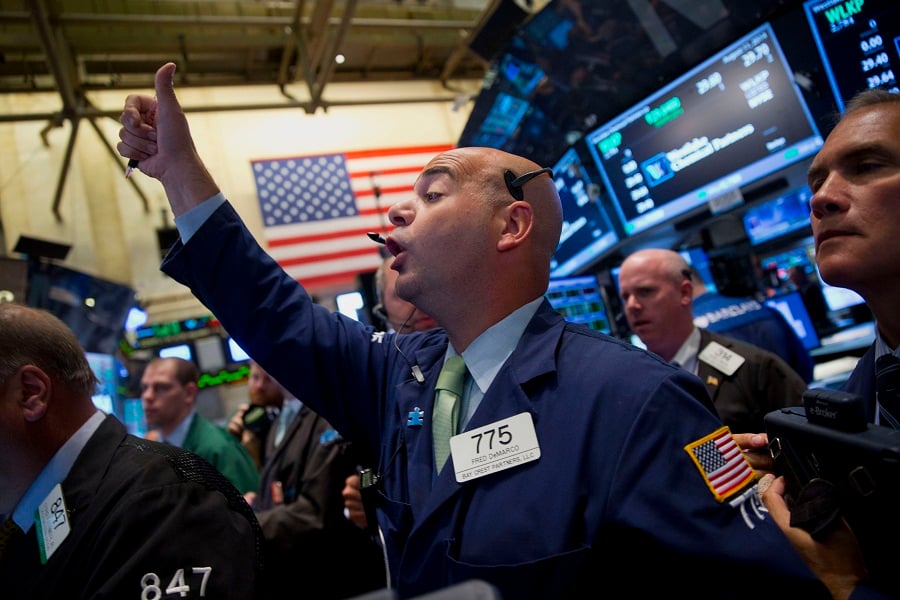Another observation about elevated prices in the stock market from the Federal Reserve provided only brief drama for investors.
Nine months after saying social media and biotechnology shares looked stretched, Federal Reserve Chair Janet Yellen said Wednesday stock valuations are “quite high” and could spur financial instability. While the S&P 500 Index slipped on the statement, it closed near its level when the warning was issued, down 0.5%.
Likewise, last year's pronouncement in a report to Congress on July 15 did little to slow advances in two of the market's more speculative corners. Ms. Yellen may sense increasing urgency to rein in investors as the Fed prepares to raise interest rates after holding them near zero percent for more than six years.
(More: No champagne for new Nasdaq record but advisers take heed of history)
“The Fed is in a box in terms of raising rates, and she's buying some time,” Peter Jankovskis, who helps oversee $1.9 billion as co-chief investment officer of Lisle, Ill.-based OakBrook Investments, said by phone. “She's trying to jawbone the market.”
The S&P 500 has nearly tripled since plunging to a 12-year low during the financial crisis in March 2009. The Nasdaq closed at a record two weeks ago, when it erased its losses since the dot-com bubble in 2000.
The S&P 500 Index trades at 17.6 times forecast earnings of its members, above the five-year average multiple of 14.5 times. The benchmark equity gauge has climbed 1% this year, closing at a record April 24, even amid a slowdown in U.S. economic growth during the first quarter.
Ms. Yellen, speaking at a forum on finance in Washington on Wednesday, said that after holding rates near zero since December 2008, the Fed must be on the lookout for threats to financial stability.
'QUITE HIGH'
“I would highlight that equity-market valuations at this point generally are quite high,” Ms. Yellen said in response to a question. “Now, they're not so high when you compare the returns on equities to the returns on safe assets like bonds, which are also very low, but there are potential dangers there.”
Using a valuation technique sometimes referred to as the Fed model, U.S. equities remain cheap compared with government bonds. The S&P 500's earnings yield, or profit as a percentage of price, stands at about 5.5%, more than twice the 2.2% rate on 10-year Treasuries.
While stocks have been cheaper on this basis at various points during the bull market that began in 2009, they're still less expensive relative to bonds than any time in the three decades that preceded it, data compiled by Bloomberg show.
(More: Gross says 35-year bull market in stocks and bonds coming to an end)
On July 15, the Fed said in its semi-annual Monetary Policy Report that valuations of social media and biotechnology shares might be “stretched.” After a temporary pullback, both have rallied as the Nasdaq Composite Index advanced 11%.
TECH STOCKS
The Solactive Social Media Index has gained an additional 3.9% since the report, while the Nasdaq Biotechnology Index is up 35% over the same period. The latter's rally has pushed valuation measures well above historical averages: the gauge trades at 9 times sales, compared with a decade average of 6 times.
Whenever a Fed official issues an assessment of the stock market, investors are reminded of former Chairman Alan Greenspan's questions about “irrational exuberance” in 1996. But the current Fed has also been vocal about its concerns.
Dallas Fed President Richard Fisher cautioned in March 2014 that there were signs in financial markets indicating the Fed's bond-buying program may have been emboldening investors to take excessive risks.
“Perhaps this is one of the things to let the air out of the balloon before they get to the fact that they're actually going to raise rates,” Brent Schutte, senior investment strategist at BMO Global Asset Management in Chicago, said by phone. The firm manages about $240 billion. “They want the market to behave a little better and price risk more appropriately.”







